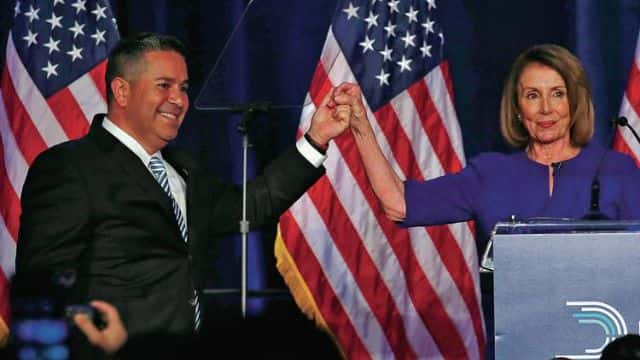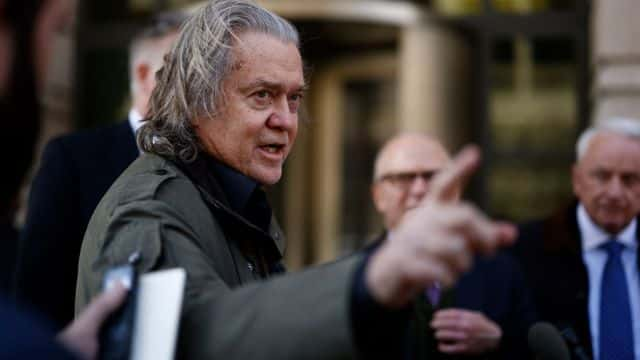Bannon is facing criminal contempt of Congress charges after refusing to cooperate with the House committee investigating the US Capitol insurgency for months.
Jury selection is set to begin Monday in the trial of Steve Bannon, a former adviser to former President Donald Trump who faces criminal contempt of Congress charges after refusing to cooperate with the House committee investigating the Jan. 6, 2021, Capitol insurgency for months.
Bannon is charged in federal court in Washington, D.C., with ignoring a subpoena issued by the Jan. 6 committee, which sought his records and testimony.
He was indicted in November on two counts of criminal contempt of Congress, one month after the Justice Department received a congressional referral. Each count carries a minimum of 30 days in jail and a maximum of a year behind bars.
The trial comes after a flurry of activity in the case since July 9. The former White House strategist notified the committee more than a week ago that he is now willing to testify.
According to his lawyer, Robert Costello, the change occurred because Trump waived his executive privilege claim to prevent the testimony.
Bannon, 68, was one of the most visible Trump-allied holdouts in refusing to testify before the committee. He has claimed that Trump’s claim of executive privilege protects his testimony.
Even as a former president, Trump has used executive privilege to try to prevent witness testimony and the release of White House documents.
The Supreme Court ruled in January against Trump’s efforts to prevent the National Archives from cooperating with the committee, citing a lower court judge’s observation that “Presidents are not kings.”

The committee also noted that Trump fired Bannon from the White House in 2017, so Bannon was a private citizen when he was consulting with the then-president in the run-up to the riot.
In separate hearings last week, U.S. District Judge Carl Nichols denied motions to delay the trial, including one on Thursday when Bannon’s lawyers raised concerns about a CNN report that has since aired about their client and what they said were prejudicial comments made during a hearing last week held by the House committee investigating the riot.
“I am aware of current concerns about publicity and bias and whether we can seat a jury that is appropriate and fair, but as I previously stated, I believe the appropriate course is to go through the voir dire process,” Nichols said Thursday, referring to the questioning of individual jurors before they are selected. The judge stated that he intended to summon a jury “is going to be appropriate, fair, and unbiased.”
Read more:-
- The Trial for Steve Bannon’s Contempt of Congress is Expected to Be Expedited.
- The Interior Department’s Offshore Drilling Plan Has Been Slammed by Both Sides of an Us Senate Committee.
- On This Day in History, Sen. Edward Kennedy Drives Off a Bridge, Killing Mary Jo Kopechne.
While the judge allowed the trial to proceed, Nichols left open the possibility that the letters about Trump waiving his privilege and Bannon’s offer to cooperate with the committee could be used at trial, saying the information was “at least potentially relevant” to Bannon’s defence.
Former US Attorney in Washington, D.C. Roscoe Howard Jr. said the best case for Bannon is if the jury learns about his cooperation offer.
Even if it does, Howard believes that claiming executive privilege prevented Bannon from cooperating earlier will be difficult because Bannon refused to answer the subpoena.
“You must appear to invoke the privilege claim.” You can’t do it by phone, “he stated.


